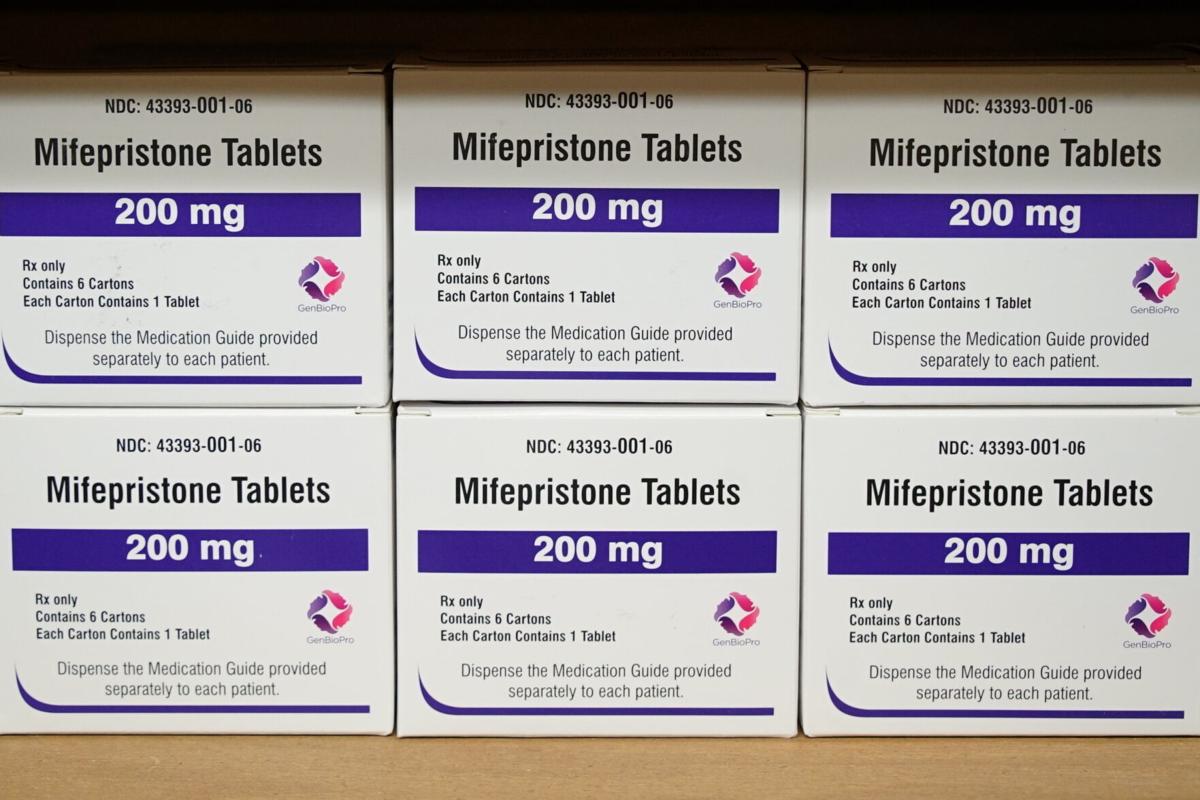The U.S. Food and Drug Administration is fighting an Arizona law firm’s attempt to block public access to a popular method of terminating a pregnancy used in nearly half of the state’s abortion cases.
The Scottsdale-based Alliance Defending Freedom law firm, which says it was founded to defend what it calls Christian values, is suing on behalf of doctors opposed to abortion. They seek an injunction to stop the “abortion pill,” technically two separate medications used together, from being prescribed in the United States.
Lawyers for the FDA say the lawsuit seeks to upend longstanding scientific determinations of the safety and efficacy of the two-drug regimen “based on speculative allegations of harm offered’’ that come too late and are “without merit.’’
That “would cause significant harm, depriving patients of a safe and effective drug that has been on the market for more than two decades,’’ wrote the U.S. Department of Justice’s Noah Katzen.
What it would not do is end abortions, Katzen told U.S. District Court Judge Matthew Kacsmaryk, in urging him to quash the injunction request.
Instead, he said, it would leave surgical abortions as women’s only option to terminate a pregnancy. He said that is “an invasive medical procedure that increases health risks for some patients and may be otherwise inaccessible to others.”
Katzen called the claims of the doctors who are suing — none of whom perform abortions — that they are indirectly harmed by the availability of the drugs “speculative’’ at best.
“Yet they ask this court for emergency relief in the form of a mandatory injunction that would immediately withdraw approval of a safe and effective drug that has been available in the United States for more than two decades — based on speculative allegations of harm and plaintiffs’ untested assertions ... that they know better than FDA whether this drug is safe,’’ Katzen said. “That request is extraordinary and unprecedented.’’
No date has been set for a hearing.
Politics argument
The main drug at issue, mifepristone, also known as RU-486, was approved by the FDA as “safe and effective when used to terminate a pregnancy’’ in accordance with labeling instructions.
Misoprostal was added to the regimen by the FDA after it was determined that the first medication does not always work by itself. The other drug induces contractions to expel an embryo or fetus from the womb.
Removal of the drugs would affect nearly half the abortions performed in Arizona.
In 2021 — the most recent year for which the state health department has data — there were 6,720 pregnancies terminated using nonsurgical procedures, virtually all of them with the two-drug regimen. There were 7,180 surgical abortions.
In essence, Erik Baptist of Alliance Defending Freedom argues the FDA ignored evidence that the two medications are medically unsafe and that it chose “politics over science.’’
“The only way the FDA could have approved chemical abortion drugs was to use its accelerated drug approval authority, necessitating the FDA to call pregnancy an ‘illness’ and argue that these dangerous drugs provide a ‘meaningful therapeutic benefit’ over existing treatments,’’ Baptist wrote.
“But pregnancy is not an illness, nor do chemical abortion drugs provide a therapeutic benefit over surgical abortion,’’ he said, calling the FDA’s assertions “transparently false.’’
Baptist said the agency, in granting approval for use in abortions, “needed to disavow science and law’’ because it never studied the safety of the drugs under labeled conditions of use as required.
Katzen, the federal attorney, told the judge that wasn’t the case. He detailed the steps and safety studies taken since the FDA first approved the drug in 2000. All those steps resulted in increasing the window for use of the drug from 49 days to 70 and allowing it to be administered with one office visit so patients could be in an “appropriate and safe location’’ when cramping and bleeding would begin, he said.
Earlier this year the agency removed the requirement for in-person dispensing.
‘No sound reason’ to second-guess
What’s also missing in the challenge, Katzen said, is other relevant information.
“Plaintiffs fail to acknowledge that the alternatives to mifepristone — surgical abortion or continued pregnancy — also have rates of complications, with childbirth’s being substantially higher than mifepristone,’’ he said.
“Plaintiffs identify no sound reason for the court to second-guess FDA’s scientific judgment nor any provision of the federal Food, Drug and Cosmetic Act that supports their contentions,’’ Katzen told the judge, saying the agency’s decisions were “reasonable and reasonably explained.’’
Moreover, Katzen said an injunction requires the person seeking it to establish an “injury in fact.’’
“The complaining physicians are not themselves regulated by the FDA, and they do not purport to prescribe mifepristone,’’ he said.
Instead, Katzen said, the most they can claim is that they will be injured “in a highly roundabout fashion’’ because other doctors will prescribe the drug to patients, those patients will seek care from them, causing them to divert time and resources, subjecting them to potential liability “and potentially causing them to suffer grief, distress, and guilt.’’
“The speculative nature of these claims is self-evident,’’ he told the judge.





